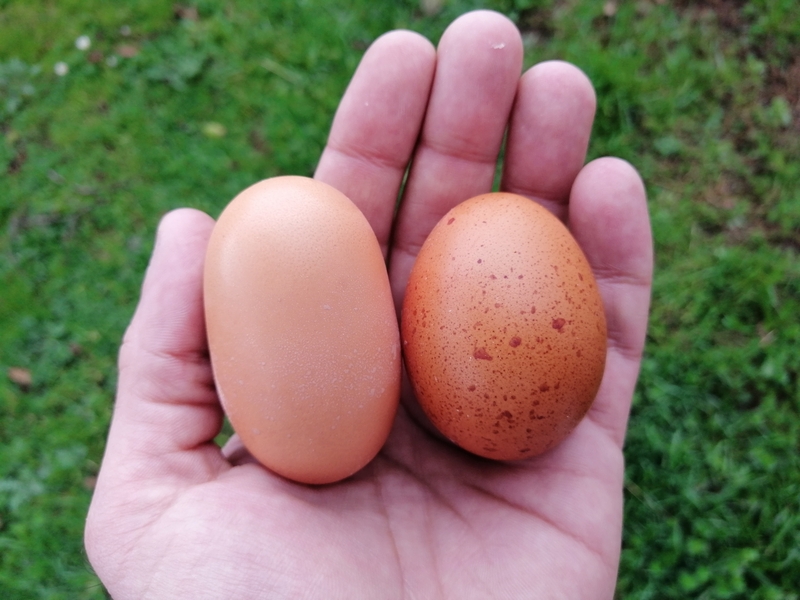
Yes, a chicken’s first eggs are edible and are no different from eggs laid by an older chicken.
Chickens typically begin laying eggs at around 5-6 months of age, and their first eggs may be small or misshapen. However, these eggs are still perfectly safe to eat and can be used in the same way as eggs from an older chicken.
It is still important to handle and store all eggs, including a chicken’s first eggs, with care to ensure that they are safe to eat. This includes washing the eggs before use, storing them in the refrigerator, and using them within a few weeks of being laid.
By following these guidelines, you can ensure that your chicken’s first eggs are fresh and safe to eat.
Do They Taste Different Than Eggs from Mature Chickens?
A chicken’s first eggs are no different in taste from eggs laid by an older chicken.
The taste of an egg is largely determined by the diet of the chicken that laid it, as well as factors such as the quality of the eggshell and the age of the egg.
Chickens that are fed a varied and nutritious diet will produce eggs that are rich in flavor and nutrients. Fresh eggs that are handled and stored properly will also have a better taste than eggs that are old or have been improperly stored.
In general, there should be no significant difference in the taste of a chicken’s first eggs compared to eggs laid by an older chicken, as long as the chicken is being fed a balanced and nutritious diet and the eggs are handled and stored properly.
Why Do a Chicken’s First Eggs Look Strange?
A chicken’s first eggs may look strange because the chicken is still learning how to lay eggs.
Chickens typically begin laying eggs at around 5-6 months of age, and their first eggs may be small or misshapen. This is because the chicken’s reproductive system is still developing and may not be producing eggs with the same consistency and regularity as an older chicken.
It is also possible that a chicken’s first eggs may be oddly shaped or have thin shells due to genetics or environmental factors. Some chicken breeds are more prone to producing eggs with thin or misshapen shells than others.
In addition, a chicken’s diet and the quality of its living environment can also affect the appearance of its eggs.
Despite their unusual appearance, a chicken’s first eggs are perfectly safe to eat and can be used in the same way as eggs from an older chicken. The taste and nutritional value of a chicken’s first eggs will be the same as those of eggs laid by an older chicken under the same conditions.